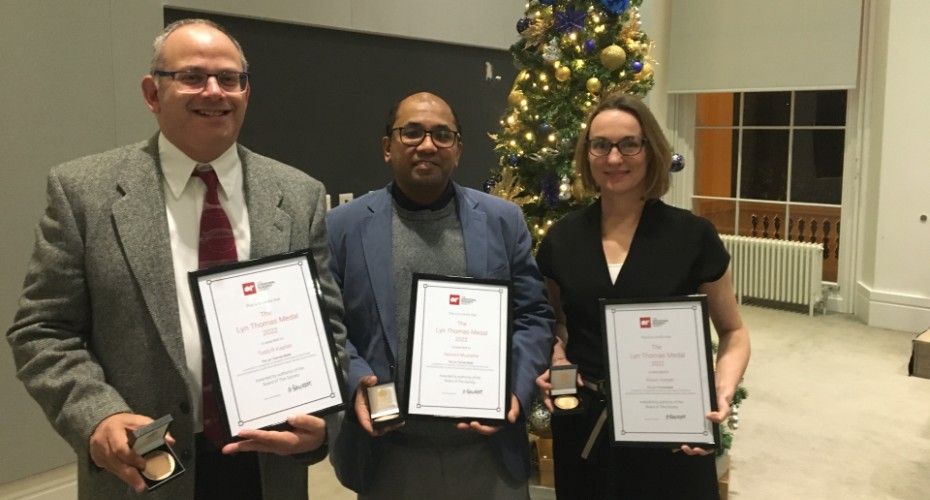Exeter researchers receive impact award for digital platform that can reduce A&E waiting times

Researchers from the University of Exeter Business School have received a prestigious award for their work on an app and digital platform that provides live waiting times for A&E departments and other centres of urgent care.
The researchers were last month awarded the Lyn Thomas Impact Medal for their work on decision-making and patient flows in healthcare facilities that was instrumental in the design and development of NHSquicker.
The Lyn Thomas Impact Medal is awarded annually by the Operational Research Society for research that demonstrates novelty and real-world impact.
NHSquicker allows patients to make an informed choice of where to go for treatment by showing them the real-time waiting times at A&E departments, Urgent Care Centres and Minor Injuries Units.
It has been available to 1.7 million patients across the South West since its launch in 2017.
The researchers initially worked with South Devon and Torbay NHS Foundation Trust to develop the system architecture, and the collaboration has since expanded to include multiple NHS Trusts in Devon, Cornwall and Somerset.
The Exeter team was led by Professor Navonil Mustafee and included Emeritus Professor John Powell, Dr Alison Harper, Professor Todd R Kaplan and Professor Surajeet Chakravarty. It also included Susan Martin and Andrew Fordyce from South Devon and Torbay NHS Foundation Trust.
The researchers collected their medals at the OR Society’s Blackett Lecture held at the Royal Society of Engineering in London on 7 December, where Professor Mustafee, Dr Harper and Professor Kaplan accepted the award on behalf of the Exeter team.
“It’s a tremendous honour for us to have received the Lyn Thomas Impact Medal, which recognises and celebrates the impact of research in providing solutions to urgent problems that affect us all, “ said Professor Mustafee, a Professor of Analytics and Operations Management at the University of Exeter Business School.
“We are immensely proud of the success of NHSquicker in helping to reduce pressure on A&E services in the South West by directing patients who require urgent care away from busy A&E departments at peak times to other appropriate centres of care. We provide information that can lead to shorter waiting times and improved patient experience.
“The NHS is currently under a huge strain with A&E waiting times, and while the app cannot solve that problem alone, our data shows that NHSquicker alleviates pressure on the NHS by making crucial information – on waiting times and travel times – easy to access, thus empowering patients to make an informed choice about whether to go to another hospital or visit a minor injuries unit instead; whether to travel further to be seen quicker.”
NHSquicker currently receives data from all acute hospital trusts in Devon and Cornwall as well as one Trust in Somerset. It receives real-time data from 26 centres for urgent care, including seven emergency departments.
A new version of the app, which is available for both Android and iOS, launched in June 2019 and also provides on-demand information on GPs, pharmacies and sexual health clinics by directly using the NHS Directory of Services (DOS) database.
The next stage for the researchers will be to scale up NHSquicker from a regional to a national setting.
Find out more about the Lyn Thomas Impact Medal here.
NHSquicker was an impact case study for REF2021, Unit of Assessment 17 (Business and Management).



